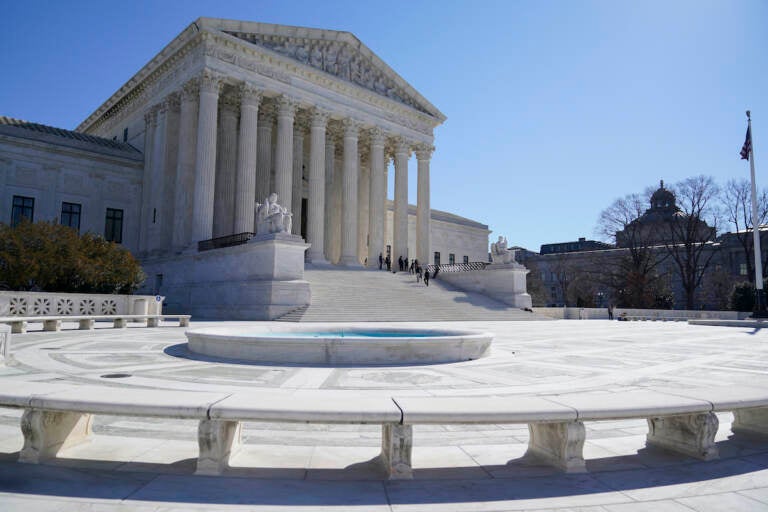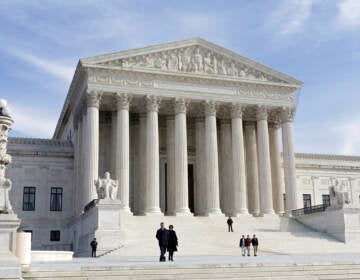U.S. Supreme Court ruling against Delaware in unclaimed property case could cost the state up to $250 million
The case centered on $250 million from unused money orders issued by MoneyGram, which is based in Texas but headquartered in Delaware.

The U.S. Supreme Court on Friday, Feb.11, 2022, in Washington. (AP Photo/Mariam Zuhaib)
For decades, Delaware has reaped hundreds of millions of dollars annually from so-called abandoned property of the 1.8 million companies that call the state their corporate home.
But 30 other states have been in litigation with Delaware over its claim on cash issued by MoneyGram, the world’s second-largest money transfer company.
Delaware has long asserted that it can keep unclaimed MoneyGram cash because the company is incorporated here even though it is headquartered in Texas and the so-called money orders are purchased all over the country.
But other states, including Pennsylvania, have argued that MoneyGrams that go unclaimed should have been returned to the state where they were bought.
On Tuesday, the U.S. Supreme Court sided unanimously with Delaware’s foes.
The ruling, authored by Justice Ketanji Brown Jackson, said Delaware collected about $250 million in such fees from 2002 to 2017, but hasn’t kept any since then. Jackson ruled that Delaware should return the money to the states where they were purchased.
Governor John Carney’s office did not immediately comment on the ruling, and it’s unclear if the ruling could trigger other litigation that would affect more of Delaware’s ample revenue from unclaimed funds.
Beyond the MoneyGram collections, unclaimed property that Delaware keeps includes unclaimed stock dividends, closed bank accounts, and unused gift cards. Delaware actively seeks out the money where companies incorporated in Delaware operated.
The state is projected to collect $375 million in revenue from unclaimed property for the fiscal year that starts July 1. That’s about 7% of Carney’s proposed general fund budget.

Get daily updates from WHYY News!
WHYY is your source for fact-based, in-depth journalism and information. As a nonprofit organization, we rely on financial support from readers like you. Please give today.






